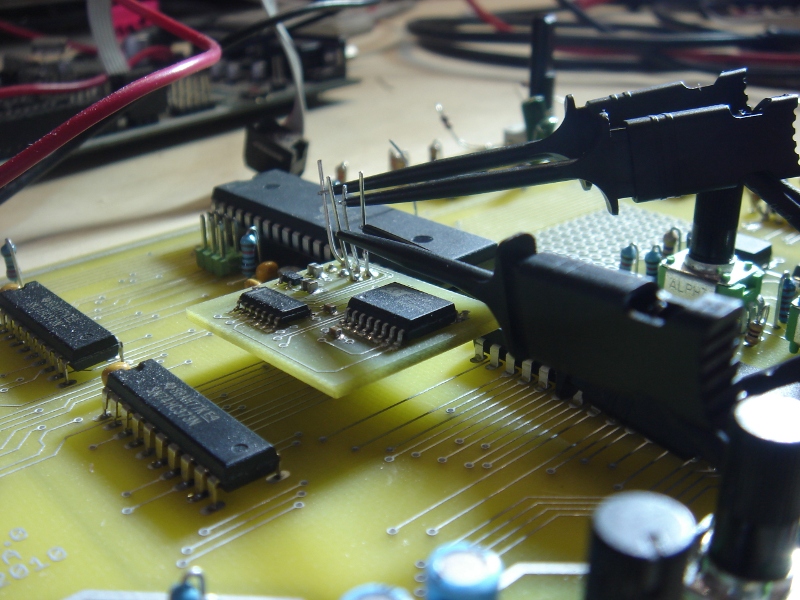WTPA2 Proto Starting to Pwn
Monday, September 20th, 2010So the first iteration of WTPA2 has some dumbass mistakes — bus problems during flashing hardware (missing pullups), some switch latch goofiness, and turns out all those RC filters in the encoder datasheet really ARE a good idea. However, once all the traces got cut and the little merce-resistors got in place, the thing works great. The VCO is spot on. More importantly, so is the FLASH MEMORY! The SST flash kinda sucks in that it’s not fancy and requires you to manage erasing-before-writing and demands paying attention to buffering and stuff, but you can totally turn off WTPA2 and turn it back on and keep playing with that perfect burp sound you made.

Also, equally excitingly, the ISR has gotten A LOT FASTER — this proto recorded and played back just fine at 45kHz. A lot of this had to do with taking some very good suggestions from Olivier over at Mutable Instruments (of the Shruthi-1 fame) who is a great programmer and shamed me out of much laziness in my code.
As if that wasn’t enough, I finally licked the lion’s share of the noise sources that plagued WTPA1. I’d always been really careful about analog signal routing, but I’d been pretty cavalier about ignoring the hell out of some of the “Analog Noise Cancelling Techniques” in the Atmega datasheet. Turns out I traced most of the noise back to on-chip activity which had to do with reading and writing to the SRAM (toggling GPIOs) while the ADC conversion was taking place. I moved some of the accesses around and that NAILED it. Like, totally duh!
Also, re: the picture — I bought one of those Saleae Logic analyzers the moment they started supporting Linux because it seemed like a cool toy. But it’s actually really useful and works great! In addition to actually seeing what’s going on over the bus (as attached here) it’s REALLY handy for timing ISRs. Like, you toggle a pin high when you vector, and then low again when you exit. I always did this with a scope, but the logic analyzer is great because it records a lot of them and you can analyze variation, see what happens between several different calls, use many channels, etc etc.
Anyhoo, WTPA2 had an exciting week. It may take a break for a minute as I have a really busy winter coming up, but still, good time.
xo
TB